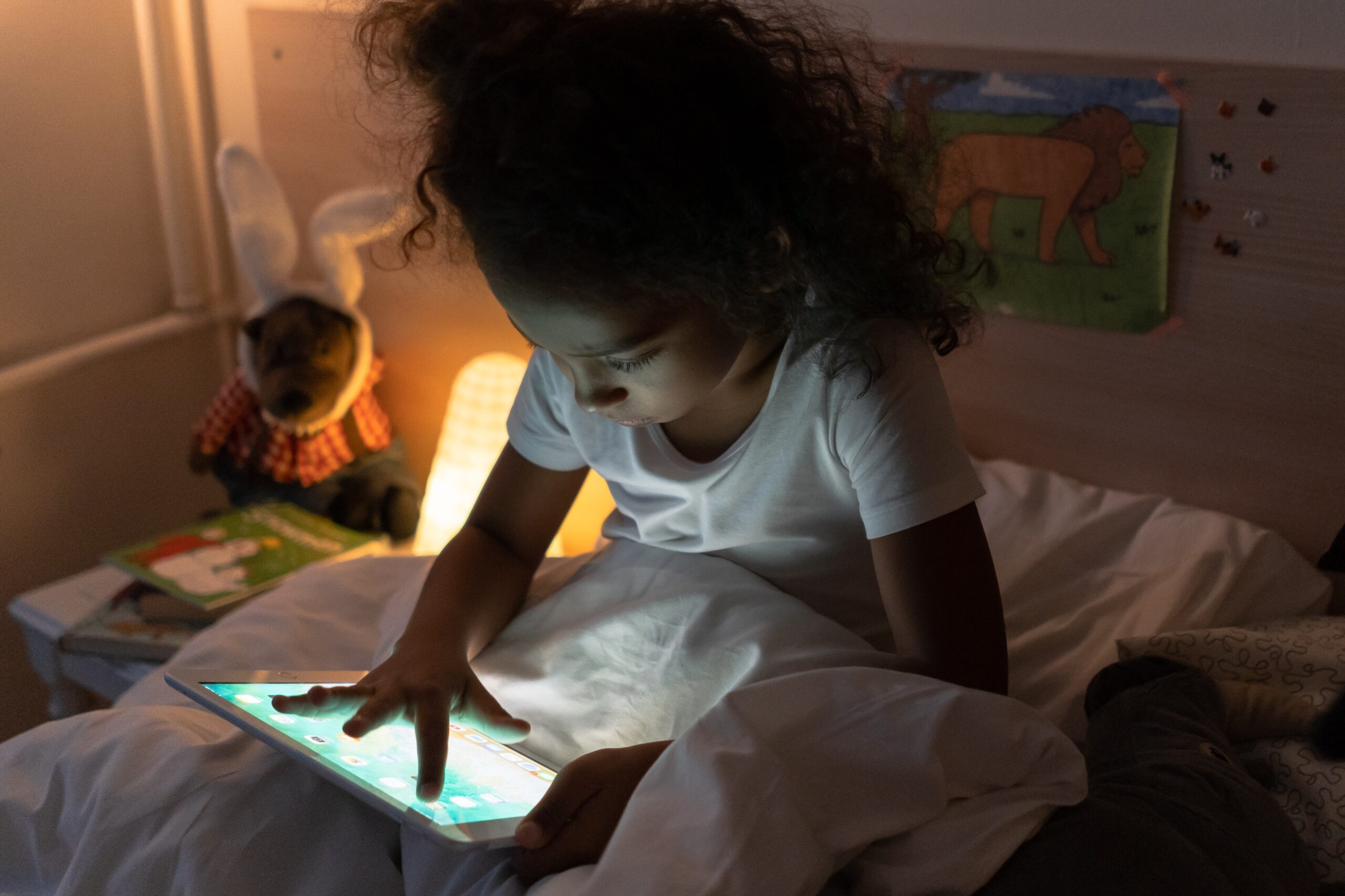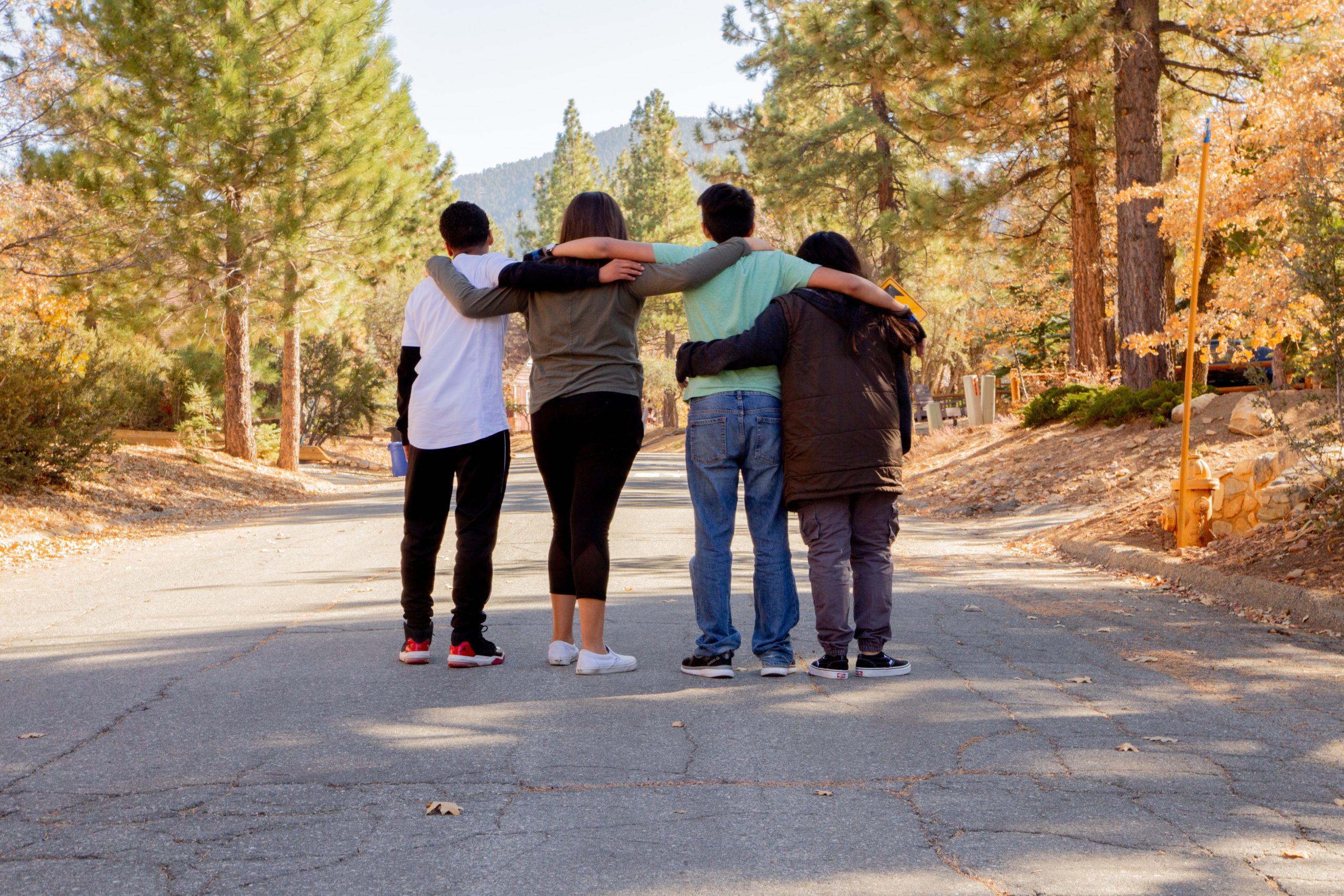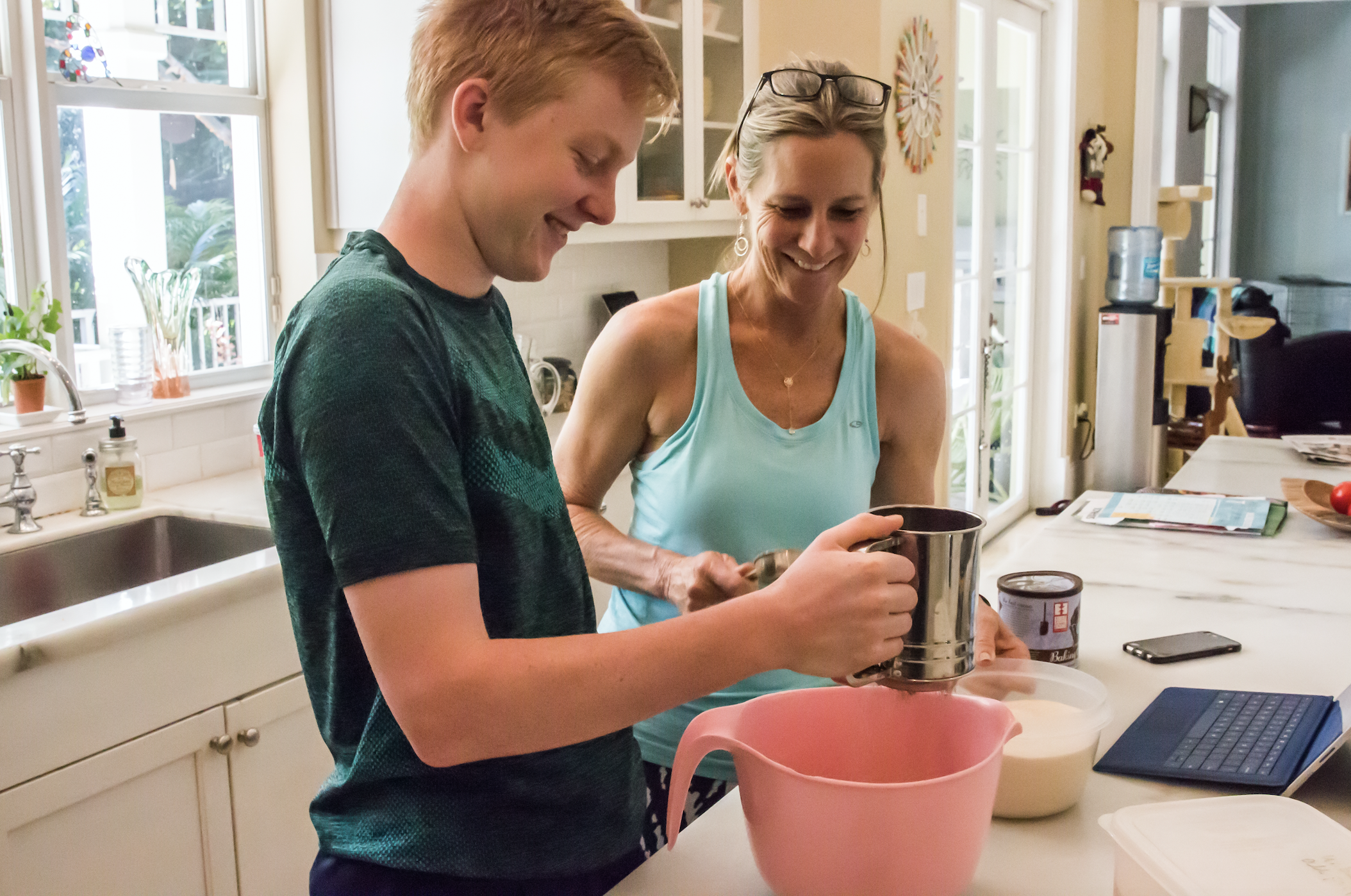One Aspect of Parenting that Completely Changed My Classroom
By Kara Mallory When my three kids were particularly fussy as infants, my husband would take them outside. He’d walk across the backyard or sit on the front porch, and most of the time, they would begin to settle. As those babies grew up, when we reached the long and tiring toddler years, my solution for cranky toddlers was to take
A Tool to Foster Better Conversations with Your Kids
By Tim Elmore Let’s face it. It’s harder than we thought it would be. A recent Pew Research Center poll revealed that most parents (62 percent) say that being a parent is harder than they expected, and more than one in four (26 percent) say it’s “a lot harder.” Unfortunately, those little tykes don’t come with an owner’s manual, or any
Taking the Easy Route
By Tim Elmore Most moms with young children are exhausted. At least the ones I meet are. They don’t regret having kids, nor do they resent the parenting journey. They’re just weary. Younger kids can sap the energy right out of you. I recall a humorous story about a mom who was with eight children at the park one day. A
What If Our Kids Could Manage Their Own Screen Time
By Andrew McPeak Today’s blog is an excerpt from the upcoming book, “Ready for Real Life.” Be on the lookout for the upcoming pre-order of “Ready for Real Life” coming soon. A few years ago, I read a quote in a parenting magazine where a concerned author and parent voiced the fear that many parents have about the emergence of new technologies: “Here
How Parents Steal from Their Kids
By Tim Elmore I recently met with the faculty of a high-performing public high school. In our discussion, teachers mentioned how much parents got involved in their kids’ routines. At first, I assumed this was a positive remark, but later I recognized the type of parental engagement they referred to was not helpful at all. Every school enjoys parents who support
Assembling a Team of Voices to Reach Your Teens
By Tim Elmore Like most mothers, my wife shared a common objection when our kids were teens. She’d make requests of them, repeatedly, but get no response. To be clear, our daughter and son were not hearing impaired, nor did they have ADHD. It seemed they had selective hearing skills: They often did not hear the words clean up your room
Four Ideas to Help Today’s Kids Delay Gratification
By Tim Elmore One of the best decisions my parents made was during the summer of my eleventh year. I begged them to let me go to Bobby Leonard’s Sports Camp, one state over, and three hours away. I pestered them long enough to convince them it was a good idea. My parents dropped me off on Sunday and were expected to
Advice to Teachers and Parents When Guiding Teens on Instagram
By: Tim Elmore Anyone who cares about young people should see the data just revealed on Instagram and its parent company Facebook. Millions of teenagers, mostly girls, have spiraled into symptoms of depression and despair after spending time on these platforms. The data seems to indicate the connection between depression and Instagram is not just a coincidence. One teen, Anastasia Vlasova,
Sharenting: Solving the Problem of Parents and Kids on Instagram
It all started when April, Christine's youngest daughter, was five years old. Christine knew April would be their family's last baby and wanted to document each milestone and comical moment of her childhood. By the time she was ten, April was avoiding photo ops; shying away from the camera. By 13, when she had a phone of her own, April
Five Ideas to Manage Your Kids’ Screen Time in a Pandemic
By: Tim Elmore This may not surprise you, but since the pandemic started, kids' screen time has doubled. Qustodio, a monitoring device that tracks screen time reports that kids' screen time has increased 100 percent since the COVID-19 outbreak started. One dad noted that his son played video games 40 hours in a single week. That’s a full-time job. Check out
What Parents and Teachers Can Do That Google Cannot Do
Many parents fret that they’re not having the same conversations with their children that they did with their parents when they were kids. Teachers fret that engaging students in the classroom is tougher today because they compete against YouTube, Netflix, and Tik Tok. Coaches and youth workers fret that keeping a student athlete’s attention is tough because they’re up against Madden NFL
How to Start a Conversation About Race with Kids
I recently met with a group of teachers and parents to talk about the “Black Lives Matter” protests. Within this group, there were caring adults on both sides of the issue: some that were completely affirming of the protests (even the damage to property) and those who were against the protests, believing they’re not the best way to accomplish the
Parents: How to Have Patience for Yourself in a Culture of Comparison
I remember overhearing a dad talk about what he’d just done for his children. Actually, he was bragging about what he’d done for them. This man just returned from a trip to the Swiss Alps where he and his kids had skied together in new matching snowsuits with brand new ski equipment. Upon their return, they stopped in New York
Five Ideas to Overcome the Challenge of Virtual Learning This Fall
Most of us weren’t quite sure what would happen when the nationwide quarantine was mandated and both parents and their kids found themselves attempting to work from home. What we now realize is that those students and their parents agree on one thing: Virtual learning didn’t work too well. Most moms and dads agree there is a huge problem with distance learning.
How to Stop Being a Control Freak with Your Kids
I just spoke to Sharon, a mom who is now teaching her three kids at home during the COVID-19 pandemic. The first few days were novel and even fun. The adrenaline that flows from doing something new had kicked in. Now, it’s a different story. Sharon told me recently her biggest struggle is wanting to control everything. I can see
How Our Parenting Has Changed Over the Years
A hundred years ago, we read stories of how families were larger, how kids were to speak only when spoken to, and how parents enjoyed a more influential voice in their teens’ lives. In most cases, the acceptable style was command and control. My research shows that much of that narrative is true. There was a clearer sense of control
Six Metaphors to Build an Incubator of Peace for Your Kids
A little while ago, I heard about a news report that gave me pause. ABC’s Good Morning America team interviewed the Chief of the New York Fire Department who said not only are the people infected by the coronavirus increasing in New York, but 23 percent of first responders have now been infected. The ones who rush in to save
Seven Practical Strategies to Talk About Mental Health with Your Kids
Even though mental health issues are on the forefront of our minds today, the topic still carries a stigma for many. Talking about depression can be hard. Trina, a sophomore in college, recently said to me, “We look around us and everyone else seems happy, and we feel we must be the only ones who struggle with mental health problems.” So,
Survey Says: Teachers and Parents Will Handle the Fall Differently
Here are some icebreaker questions for you: Why have people today felt the need to: Hoard toilet paper at the grocery store? Keep their automobile gas tanks as full as possible? Purchase enough masks to keep their faces covered for a decade? The answer is the same for all the questions: uncertainty.
How Often Should We Talk About the Pandemic With Our Kids?
When my kids were young, our family witnessed the Columbine High School shooting (a campus massacre killing 15 people and injuring dozens more) and the September 11th terrorist attacks (where almost 3,000 died). My daughter was in middle school, my son in elementary school. The stories were a lot for their young minds to process. At the time, I recall
Helping High School Grads Make a Plan for Next Year
Melanie, an 18-year old high school student, told me recently, “I am a planner, but these days I can’t really plan.” Such is the world for high school upperclassmen, especially seniors. As we leave behind the month of May, the time when schools typically host graduation ceremonies, students either experienced a virtual ceremony or they are having to wait until August.
Video Games and Smartphones: How to Help Your Kids Manage their Free Time
Today’s blog is from Andrew McPeak. Andrew is a next gen researcher, speaker and the Vice President of Content for Growing Leaders. He is also the co-author of Generation Z Unfiltered: Facing Nine Hidden Challenges of the Most Anxious Population. I was talking to a friend of mine who has three teenage boys at home. Lately, the challenges of having three teenagers
The Importance of Sharing Responsibility with Your Kids
Have you ever heard your student, employee, or son or daughter say something like: That wasn’t my fault. (And you know it was.) Mrs. Vargus gave me a bad grade. (And you know it was earned.) He made me do it. (And you know it was a choice.) You don’t trust me. (And you wonder if you should.) Responsibility is something
What Parents May Learn from Teaching Their Own Kids
One of the many viral Facebook posts spreading around the country is a note an eight-year-old boy named Ben wrote about how things were going at home now that his mom has assumed the task of being his teacher during this period of social distancing. To sum it up, Ben’s not so sure his mother is cut out for home-schooling. Young
Three Ways to Know If Your Kid Is Dealing with Loneliness
When both of my kids were young, they had no problem expressing what they wanted or needed. My wife and I would’ve sworn they were both extroverts, as they (like millions of other Millennials) let us know if they were hungry, thirsty, in need of a toy, or desiring a friend. Then they became high school students and later, college students. Eventually,
Changing the Way We Advocate for Students
Do you know parents or teachers who are so tired of bickering with their teens that they: Make a separate dinner for their children because they are a picky eater? Offer the answers to the test because it’s easier than insisting they study? Allow them to play video games all day, even when it becomes addictive? While moms and dads have
How Involved Should Parents Be in Their Child’s Education?
During the past month, I found myself speaking to more than 6,500 parents in various locations across the U.S. I never have a more engaged audience than when I’m interacting with moms and dads. That month, I found the most popular question was—how do I support my child in school? Behind that question are looming thoughts like: My daughter is so stressed



























